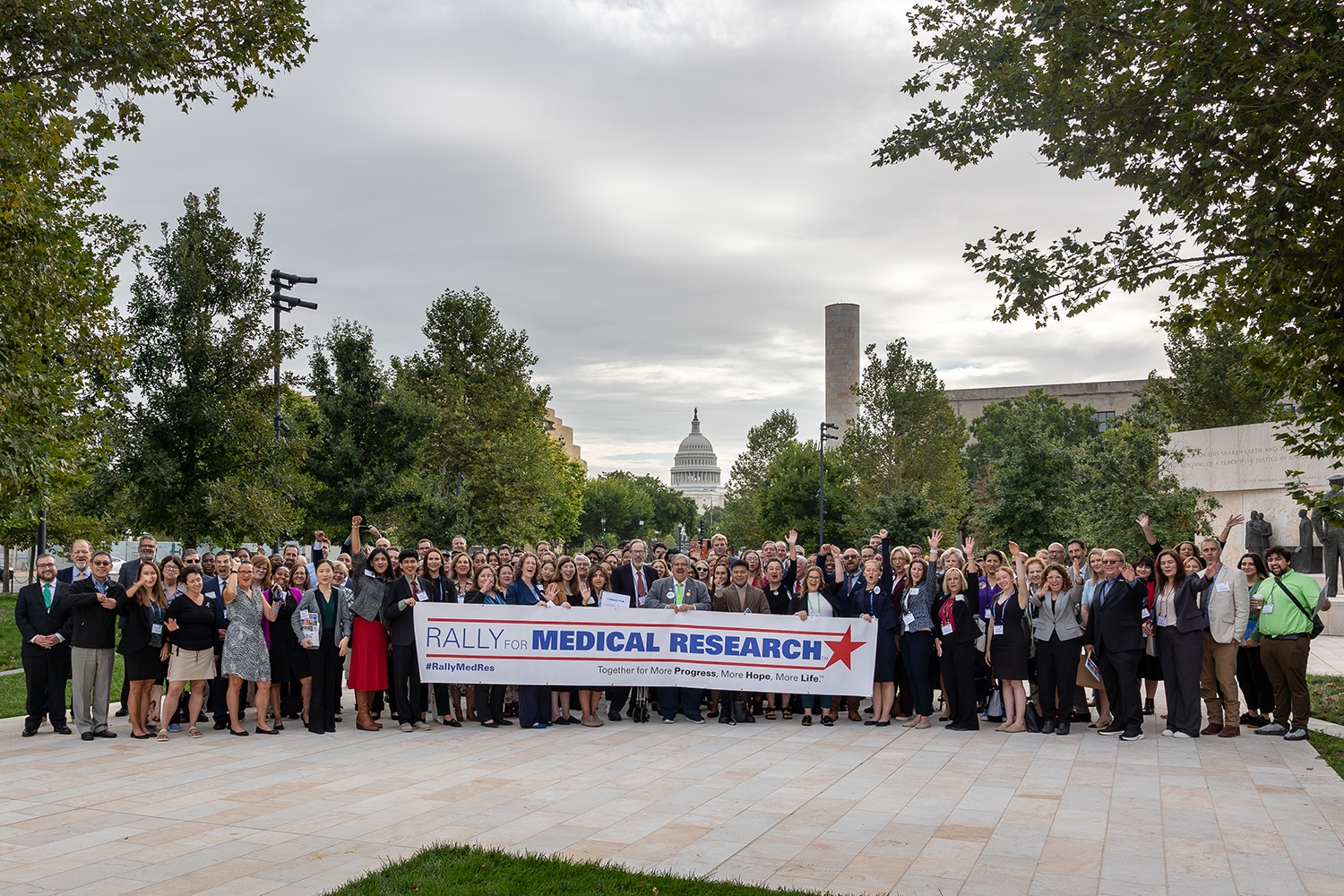WHAT BEGAN AS A SINGLE DAY OF ADVOCACY in 2013 has become an annual call to action pressing Congress to make medical research—and the National Institutes of Health (NIH)—a national priority. On Sept. 18, 2025, the Rally for Medical Research returned to Capitol Hill for its 13th and most consequential year yet.
Bringing together a broad coalition of patients, survivors, caregivers, researchers, clinicians and advocacy organizations over the years, the Rally has united more than 400 organizations with one clear message: Medical research saves lives. Since the Rally for Medical Research’s inception, the American Association for Cancer Research has proudly served as a lead sponsor.
This Rally was not a routine advocacy event, and this is not a normal year.
In the last eight months, critical research programs have been paused. Clinical trials that offer hope to patients with no other treatment options are being delayed or canceled. Promising young scientists are leaving the field altogether. This is not a hypothetical threat. It is an ongoing crisis.
Escalating policy and administrative decisions have destabilized the research ecosystem. In August 2025, an executive order gave political appointees sweeping authority over federal research grants, weakening the peer review system that has long protected scientific integrity. By shifting decisions away from expert judgment, the order risks stalling high-quality research, silencing scientists and denying patients access to clinical trials they desperately need.
At the same time, the president’s proposed budget for fiscal year 2026 calls for a nearly 40% cut to the NIH. If enacted, it would be the most severe disinvestment in medical research in modern history.
While these threats have shaken the medical research enterprise, there is reason for cautious optimism. In July 2025, the Senate Appropriations Committee advanced bipartisan legislation that not only rejected the administration’s proposed cuts but increased funding and set guardrails against political interference at NIH. The move reaffirmed NIH and the National Cancer Institute as national priorities and asserted Congress’s commitment to protecting research progress and the patients who depend on it.
While the Senate Appropriations Committee’s bipartisan action was an encouraging step, it is only the beginning. As of Aug. 22, 2025, when the magazine went to press, the full Senate still needed to approve the bill, and the House had yet to begin its process. Until both chambers move forward, the threat of devastating cuts and harmful policies remains. This is why advocacy in this moment matters. We must continue pressing Congress until robust funding is secured and NIH is restored to full capacity to drive discovery and save lives.
Medical research has long been a bipartisan priority. That legacy must be defended, not only by institutions and organizations but by individuals willing to stand up for what science makes possible. We are closer than ever to transforming what it means to face cancer, Alzheimer’s, ALS, diabetes and countless other diseases. Breakthroughs that once felt impossible are now within reach.
Stand with the patients who cannot afford to wait. Stand for the science that gives them a future. Raise your voice. Call on Congress to reject the proposed cuts, restore stability and protect the research that saves lives. Visit AACR.org/Voice to learn more about what you can do. This is not only a moment for advocacy. It is a moment to defend the very engine of medical progress and ensure it continues to deliver hope, answers and time for the millions who need it most.
Cancer Today magazine is free to cancer patients, survivors and caregivers who live in the U.S. Subscribe here to receive four issues per year.





